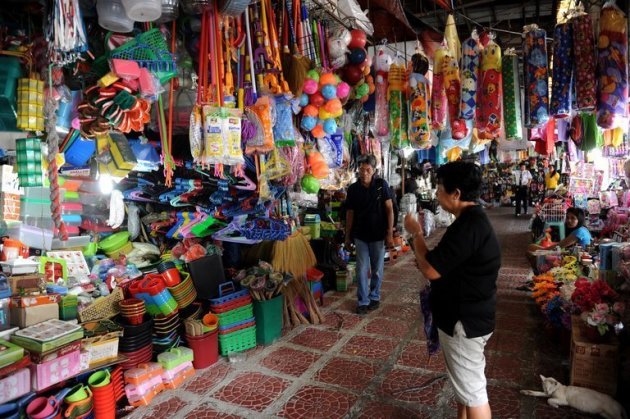
The Philippines said Thursday its economy grew by a better-than-expected 6.6 percent last year as confidence rose in President Benigno Aquino's efforts to fight corruption and alleviate poverty.
A final-quarter expansion of 6.8 percent boosted the full-year figure, the government said, cementing the country's status as one of the best performing in Asia and raising expectations of stronger growth in 2013.
"Aquino's daang matuwid (straight path) has been the key to all this success," Finance Secretary Cesar Purisima said, referring to the president's top priority of tackling pervasive graft that he blames for deep poverty.
"This is a clear manifestation that good governance is good economics. Good governance generates confidence that translates to more economic activity."
The full-year figure of 6.6 percent exceeded the government's target of 5.0-6.0 percent, and was a big improvement from an expansion of 3.9 percent in 2011.
The Philippines economy, weighed down by huge government corruption and a turbulent democracy, had for decades been regarded as one of the laggards in Asia.
Poverty rates worsened in the Philippines while improving dramatically elsewhere in the region. About one quarter of the country's nearly 100 million people live on a dollar a day or less, according to government data.
Aquino swept to power in a landslide election victory in 2010 after campaigning to fight corruption, and has continued to enjoy record high popularity ratings amid a general sentiment that he is having some success.
Investor confidence has picked up, with share prices rising 32.95 percent last year and the benchmark index climbing higher into record territory in January.
International credit ratings agencies have also issued repeated upgrades.
"All of the ingredients for the sustained growth of the economy are there," Astro del Castillo, managing director of securities analysis company First Grade Finance, told AFP.
Socio-economic Planning Secretary Arsenio Balisacan said the government would maintain its growth projection of 6-7 percent for this year, although in light of the current motoring of the economy this was a "conservative" target.
He said growth in 2012 was broad-based, with the services, business, real estate and manufacturing sectors all performing well.
However, another important driver continued to be the increasing amount of money sent home by the roughly 10 million Filipinos who are forced to work overseas because of a lack of job opportunities at home.
Balisacan also cautioned that the Philippine economy faced a range of global and domestic downside risks, with one of the most pressing the consistent energy shortages across the country.
"In support of attracting more investments and pursuing industrialisation, the government is serious in addressing the country's energy requirements," he said.
"The objectives of the energy sector are to raise energy capacity, achieve a reliable and adequate supply of electric power, and expand rural electrification."
Balisacan also said the likely continued appreciation of the peso would hurt the country's exporters, as well as the country's increasingly vital outsourcing industry.
From virtually nothing a decade ago, the outsourcing industry now accounts for roughly five percent of gross domestic product with over 600,000 people performing call centre and other back-office operations for foreign firms.
article from http://ph.news.yahoo.com/philippine-economy-grows-6-6-2012-031200073--finance.html

0 comments:
Post a Comment